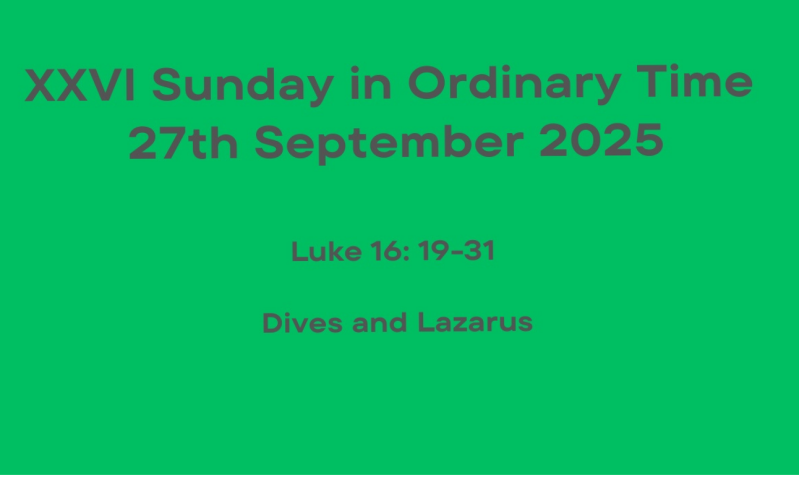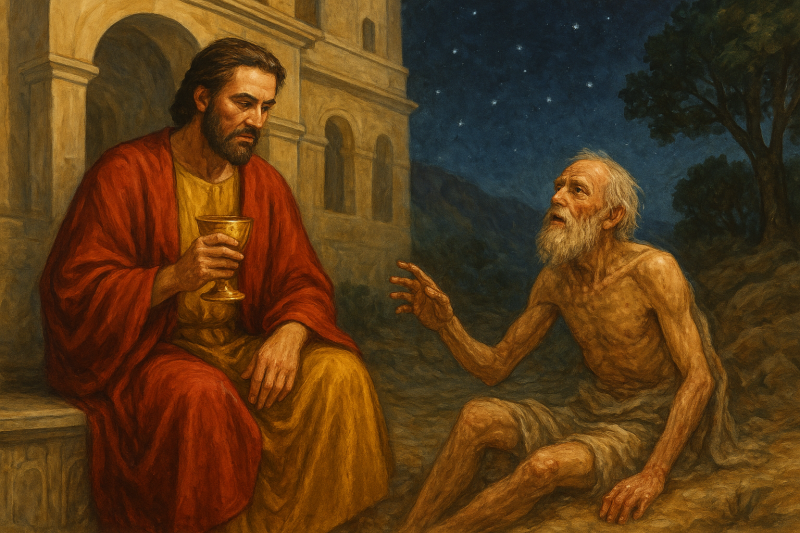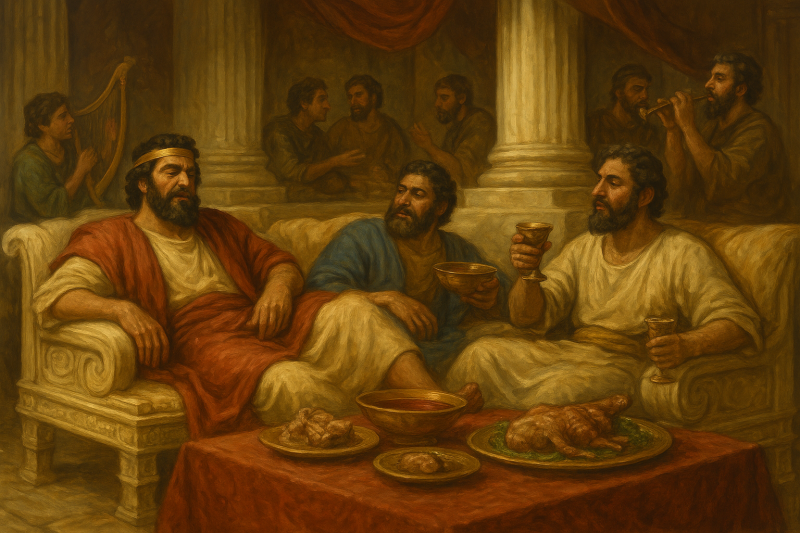Przypowieść Jezusa ukazuje prawdę o ludzkim życiu: o pragnieniu szczęścia, uznaniu, bezpieczeństwie i ludziach otaczających nas. Dzisiejsza Ewangelia zaprasza nas, by spojrzeć głębiej niż tylko na postawę unikania smutku, samotności i głodu.
Z ludzkiego punktu widzenia moglibyśmy odczytać tę Ewangelię jako opowieść o dwóch typach ludzi – niemal jak binarny system dobra i zła. Pierwszą postacią jest bogaty człowiek, który wydaje się nie mieć problemów, ale jego życie naznaczone jest monotonią i brakiem głębszego sensu. Druga postać, Łazarz, doświadcza wielkiego cierpienia – brakuje mu jedzenia, odpowiedniego ubrania, a co najboleśniejsze, nadziei. Ten brak nadziei sprawia, że czuje się przegrany.
Dziś zapraszam zarówno Ciebie, jak i siebie, abyśmy wyszli poza ten prosty system „0-1” i spojrzeli na te postaci z innej perspektywy.
Po głębszej refleksji widzimy, że żadna z tych osób nie przeżyła w pełni swojego życia. Bogaty człowiek był lepiej sytuowany materialnie, ale jego życie chronił jedynie majątek, podczas gdy Łazarz nie miał prawie nic. Obaj stanęli wobec dylematu: „co dalej?”. Bogacz patrzył w przyszłość, niepewny, co go czeka, a biedny człowiek miał niewiele nadziei na lepsze jutro. Oboje zmagali się z wielkim pytaniem życia: co dalej? Ich egzystencje istniały na przeciwległych biegunach.
Ta sama sytuacja występuje dziś. Widzimy wokół siebie ludzi bogatych i takich, którzy nie mają nic, albo prawie nic. Pytania „co dalej?” i „czy jest jakaś nadzieja?” mieszkają w naszych sercach. Oczywiście, nikt nie chce być tak biedny, by nie mieć nic, ale wszyscy zmagamy się z pytaniem: co powinienem zrobić dalej?
Prawda jest taka, że skrajności rzadko się zdarzają; większość z nas żyje gdzieś pośrodku. Wszyscy chcemy być szczęśliwi, ale życie bez pytań czy wyzwań to iluzja. Nawet jeśli ktoś twierdzi, że nie ma pytań, pozostaje w nim tęsknota do zaspokojenia pytania: „Gdzie jest moje szczęście i przyszłość?”
Oczekiwanie życia wolnego od cierpienia, wyzwań i zmagań to iluzja. Pełna radość nie jest rzeczywistością tego świata. Dziś Bóg prowadzi nas – poprzez pytania i trudności – do Swojego miejsca, ku wieczności.
Święty Paweł przypomina nam w swoich listach, że czas cierpienia na ziemi jest krótki w porównaniu z tym, co nastąpi – w wieczności.
Życie jest złożone. Wymaga od nas mierzenia się z radością pytaniami, na które nie zawsze mamy odpowiedź. Radość i wyzwania kształtują nasze człowieczeństwo. Do takiego życia powołał nas Pan. Amen.




